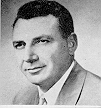25th Anniversary
A Look Ahead in Public Welfare
JOHN W. TRAMBURG
|
An anniversary is a Janus-headed time, looking both back and forward. With a number of years of local, state and federal experience in public welfare, Mr. Tramburg is now administrator of one of the largest and most inclusive state public welfare programs in the country as Commissioner of the New Jersey Department of Institutions and Agencies. His past and present experience qualify him well for assessing the future of these programs.
|
August 1960 marks the twenty-fifth anniversary of the Social Security Act. Whether these past 25 years will be the springboard for the future or the restraint that produces stagnation is, at best, a reasoned guess. Some of the factors to be considered are the growth or lag in the economy, a swelling population, automation, peace or war, expansion of the social insurances, minimum wages, what happens to the family, restoration of basic values, research, leadership in the welfare field, representative government's response to changing social needs, and finally the matter of making decisions--and hopefully the right ones--as each issue emerges. Public welfare is bound to continue to play the role of the stand-by agency when all the preventive-type programs falter or are overwhelmed by human need resulting from economic or social crises. In other words, the rescuing of human beings from life's uncertainty will continue to be the responsibility of public welfare. It is reasonable to expect public welfare to be the target at which some citizens and public officials will direct their hostility and resentment toward the poor, the unemployed and the handicapped. The tempo and brutality of their attacks will continue or slacken in relation to expenditures, sensational stories and personal opportunism. There is no doubt that the Aid to Dependent Children program will come in for its share. Illegitimacy, the unwed mother, the absentee father will continue to be looked at askance, as though public welfare were directly responsible for causing these social problems. The percentage of the cost of these programs borne by each level of government is related directly to public interest not only in the field of public welfare, but also in education, highways, housing, urban redevelopment, health, transportation, conservation. This self-evident fact is basic to any discussion and planning for new programs and the decrease in need for older, on-going operations.
Having mentioned a few of the perennial issues that seem destined for the challenge and response of the '60's, let me speculate a bit on what seems possible for us to achieve in the future. The basic Social Security Act has been amended many times since the passage of the original act. To fit the pattern of the future it is safe to assume that the Congress will continue to add amendments to meet human needs, both as a means of prevention as well as of amelioration. To the extent that social insurance is feasible in preventing human need, there will be a decrease in the demands on public welfare. I do not know of one responsible public welfare official who would not subscribe to this position. It seems possible that a fifth category of general assistance may be added to the basic act. During the recent economic downswing, public welfare departments in states that had general assistance laws moved with dispatch to feed the hungry when unemployment compensation benefits ceased or were insufficient to keep families together. They proved that they had the organization to respond in a crisis. Most of us in public welfare would prefer the substitution for categories of a law containing a simple definition of a needy person. It is my considered opinion, however, that there will be a fifth category before we get a single category. The '60's should give us the opportunity to resolve the question of residence requirements as a condition of receiving federal funds, by making it mandatory that the several states do not require a period of residence as a condition of eligibility. The '60's should find public welfare being looked upon as a family public welfare agency. Public agencies have been providing more services in the form of prevention of need and return to self-support and self-care. The agencies eagerly await the implementation of the self-help and self-care amendments of 1956 by the earliest possible action of a Congressional appropriation. This should be done or Congress should admit that it has been engendering a false hope. If ever there were a time that called for research into the causes of dependence and family breakdown, it is now. Here again Congress passed the enabling legislation but failed to appropriate funds to finance research. The '60's will demand that causes be identified and that bold, imaginative--even daring--new approaches be tried to obtain answers. I am convinced that public welfare people will demonstrate their leadership in this effort if given the opportunity.
I purposely have not touched on all the problems of the present or the possibilities of the future; others have been asked to do this. Contrary to what was predicted at the time of the passage of the Social Security Act, its administration has been applauded and supported. Public welfare in the '60's will continue its good posture, ever alert to changing times and conditions, eager to serve the people according to the mandates in the laws of the nation and the states. The people and their government will determine what role we play and the course that we are to follow.
|
